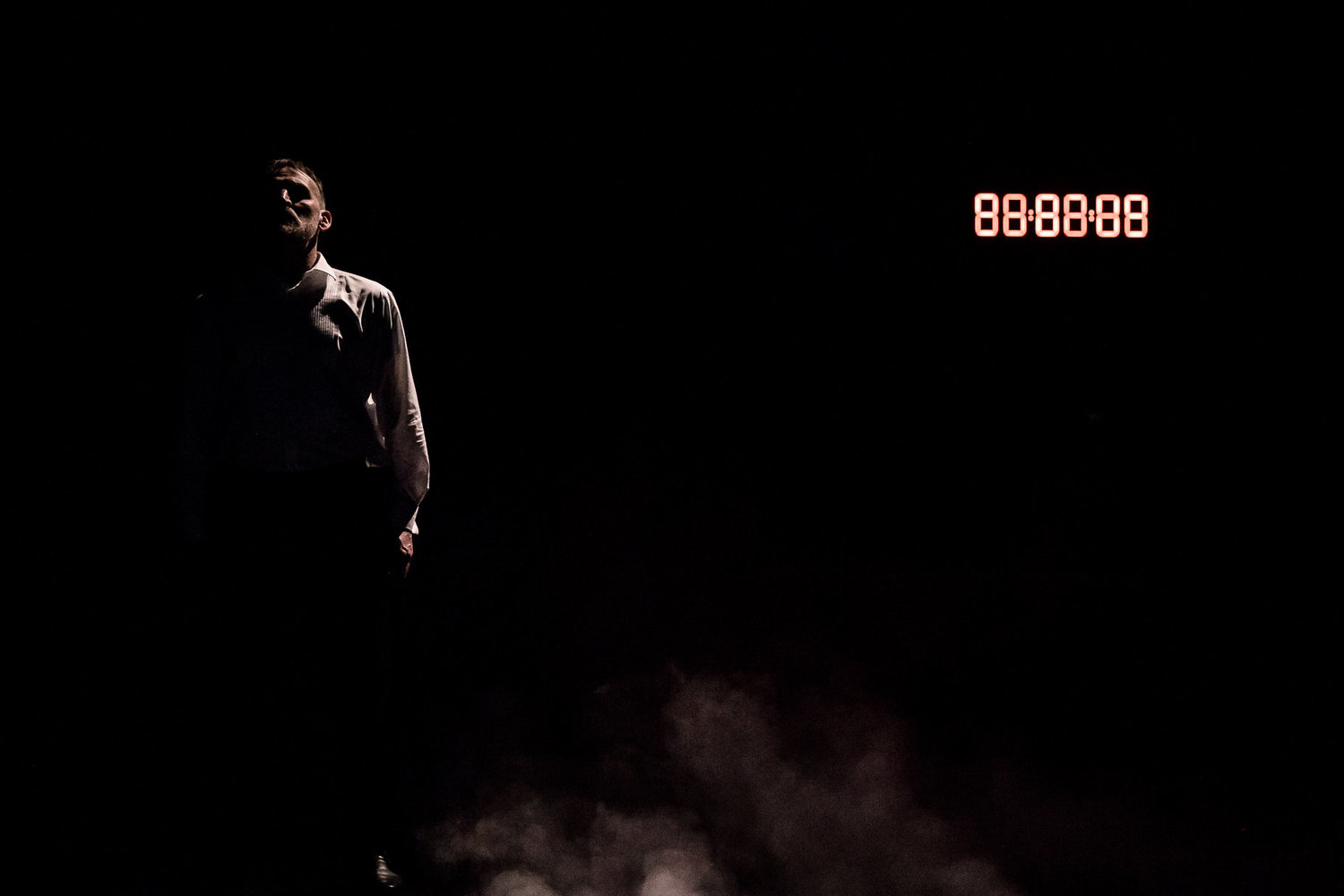Review: MACBETH, Barbican
![]() I'll be honest: there are few shows I would rather watch at the Barbican than the Royal Shakespeare Theatre. The RSC's thrust stage invites intimacy; the dark, vast Barbican anonymity.
I'll be honest: there are few shows I would rather watch at the Barbican than the Royal Shakespeare Theatre. The RSC's thrust stage invites intimacy; the dark, vast Barbican anonymity.
 However, if there was ever a show made for the Barbican, it's Polly Findlay's Macbeth. Embracing the darkness of the play and space, we too are "cabined, cribbed, confined, bound in to saucy doubts and fears" alongside Macbeth in this terrifying and thoughtful production.
However, if there was ever a show made for the Barbican, it's Polly Findlay's Macbeth. Embracing the darkness of the play and space, we too are "cabined, cribbed, confined, bound in to saucy doubts and fears" alongside Macbeth in this terrifying and thoughtful production.
Following the rise and fall of Macbeth from soldier to king, there certainly is no petty pace to Findlay's staging. An urgency looms, ushered in by Lady Macbeth early on. Upon hearing of his prophesied ascension, Niamh Cusack is frantic and near giddy, willing to do whatever it takes to dispose of Duncan and have Macbeth crowned withal.
The show clocks in at just over two hours, and I mean that quite literally. A large digital clock stands over a waiting room of sorts, counting down and anticipating Macbeth's dread exploits. The purgatorial Porter keeps time on his wristwatch and marks the death toll on a chalkboard. A sightless substance, Michael Hodgson creeps so stealthily that if you blink, he's gone.
Nods to the horror genre abound, unsettling against the domestic backdrop. Family lies at the heart of Findlay's vision, introducing the Macduffs early on. The question of the Macbeths' own child lingers in Macbeth's instantly regretted, "Bring forth men-children only". The three Weird Sisters take the shape of school children and answer the question: "What is more terrifying than the two children from The Shining?" Three small children.
At points, the tone is overdramatic. Christopher Shutt's sharp soundscape is set against Lizzie Powell's incessant flashes of light, complete with sudden head turns from characters. Locations and timings flash above the stage, as if we need reminding that the action is taking place "AFTER" the scene we've just witnessed. The "time is free" culmination and final scene feel very on the nose.
Given the urgent pace Findlay establishes, these feel like cheap jump scares in a show which knows how to inspire such sensations better. Indeed, the most affecting moments are those with little or no sound, such as Lady Macbeth's quiet resolution in death. Likewise, Edward Bennett's grieving Macduff is a masterclass in how to hold an audience with a single word.
Another unsettling and effective part of Findlay's vision comes in a less well-known character. Macbeth "requires a clearness" from blood and blame. Lennox is that means: armed with a tape recorder, he gains intelligence from rumours concerning Macduff. Armed with a knife, he then acts on it.
While Macbeth may be motivated by ambition, Macduff by revenge, what's terrifying about Tim Samuels' Lennox is that the audience doesn't know what motivates him. Samuels truly epitomises the sentiment that "None serve with [Macbeth] but constrained things whose hearts are absent too".
Much like Macbeth, I require a clearness. Findlay's reading of the text is absolutely such, with a wonderful attention to detail bringing new light and readings to the text. The smallest gesture of Cusack taking her high heels off means she will not wake the sleeping groomsmen guarding Duncan's chamber. The apparitions which pronounce Macbeth's doom are not only Banquo's ghost, but others listed on the chalkboard coming back to haunt Macbeth.
Christopher Eccleston is bloody, bold but never cold as Macbeth, in his debut for the Royal Shakespeare Copmany. Even as king, the soldier is still there: the earlier ribs become more scornful, his title hanging loose upon him.
His dearest partner of greatness, Cusack revels in the role of Lady Macbeth and is wholly sympathetic. In a brilliant move, the audience first witness the Banquo banquet scene from Lady Macbeth's perspective, no ghost visible. In a scene normally cut, Luke Newberry and Edward Bennett impress as Malcolm and Macduff, receiving a rare mid-show applause.
I feel now the past of horror films and the future of theatre in the instant. "New horrors come upon" Macbeth, in Findlay's examination of and experimentation with this genre and play.
Macbeth at the Barbican until 3 November
Photo credit: Richard Davenport
Reader Reviews


